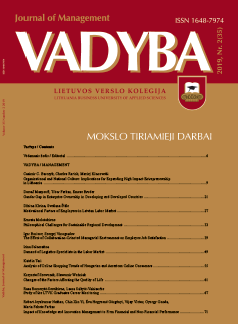IMPACTS OF HIGH SPEED RAILWAY ON TOURISM & TRAVEL INDUSTRIES IN EUROPE: POSSIBLE OUTCOMES FOR RAIL BALTICA
IMPACTS OF HIGH SPEED RAILWAY ON TOURISM & TRAVEL INDUSTRIES IN EUROPE: POSSIBLE OUTCOMES FOR RAIL BALTICA
Author(s): Olga PiterinaSubject(s): Tourism
Published by: Lietuvos verslo kolegija
Keywords: high speed railways; Rail Baltica; Tourism&Travel Industries; redistribution of tourism markets;
Summary/Abstract: In the course of the development of European high speed railways (HSR) the assessment of their impact on the development of tourism and related industries has changed from the overoptimistic to a controversial one and even to the one raising concern.In connection with the construction of a new high-speed railway Rail Baltica, which should connect Estonia, Latvia and Lithuania with the rest of Europe, the issue of planning the passenger traffic along the new corridor route should include the testing of provisional theories regarding the impact of new railway on the development of Tourism&Travel Industries.Since the methodology of cost benefit analysis does not entail the above mentioned assessment, it is necessary to study the experience of other countries in this field in order to avoid repeating the same mistakes in the provisional assessment of HSR’s impact on Tourism&Travel Industries.The aim of the article: to organize and structure the available research dedicated to the quantitative assessment of the impact of European HSRs on tourism; to identify effective and negative types of the aforementioned impact; to make known this information to the interested parties of the Rail Baltica project, as well as to the officials, responsible for determining the policy in the field of tourism and transportation in the Baltic countries. In the given research the author makes use of the methods of systematic approach, cluster analysis, comparative analysis of scientific literature and empirical studies, based on PRISMA Statement, as well as statistical methods.Results: in the course of the analysis the author has found out that there might be the following impact of Rail Baltica on the development of tourism in the project’s region: 1) redistribution of tourism markets among the member countries of the cross-border project; 2) the increase in the spatial competition in the Tourism&Travel Industries of the region; 3) the volume of induced passengers trips can exceed the forecast of investment assessments by at least three times.Conclusions: the necessary methodological basis for the organisation of passenger traffic along the Rail Baltica route can be created only by studying the existing realities of the exploitation of HSRs in different regions. Due to the lack of research in this field, the given paper can comprise a source of information for the interested governmental institutions of the RB project’s member countries, which might be useful for further detailed research. For example, it can concern the determination of cross-effects between the seasonality of tourism in the region and the organization of passenger traffic along the new railway corridor.
Journal: VADYBA
- Issue Year: 35/2019
- Issue No: 2
- Page Range: 169-176
- Page Count: 8
- Language: English

